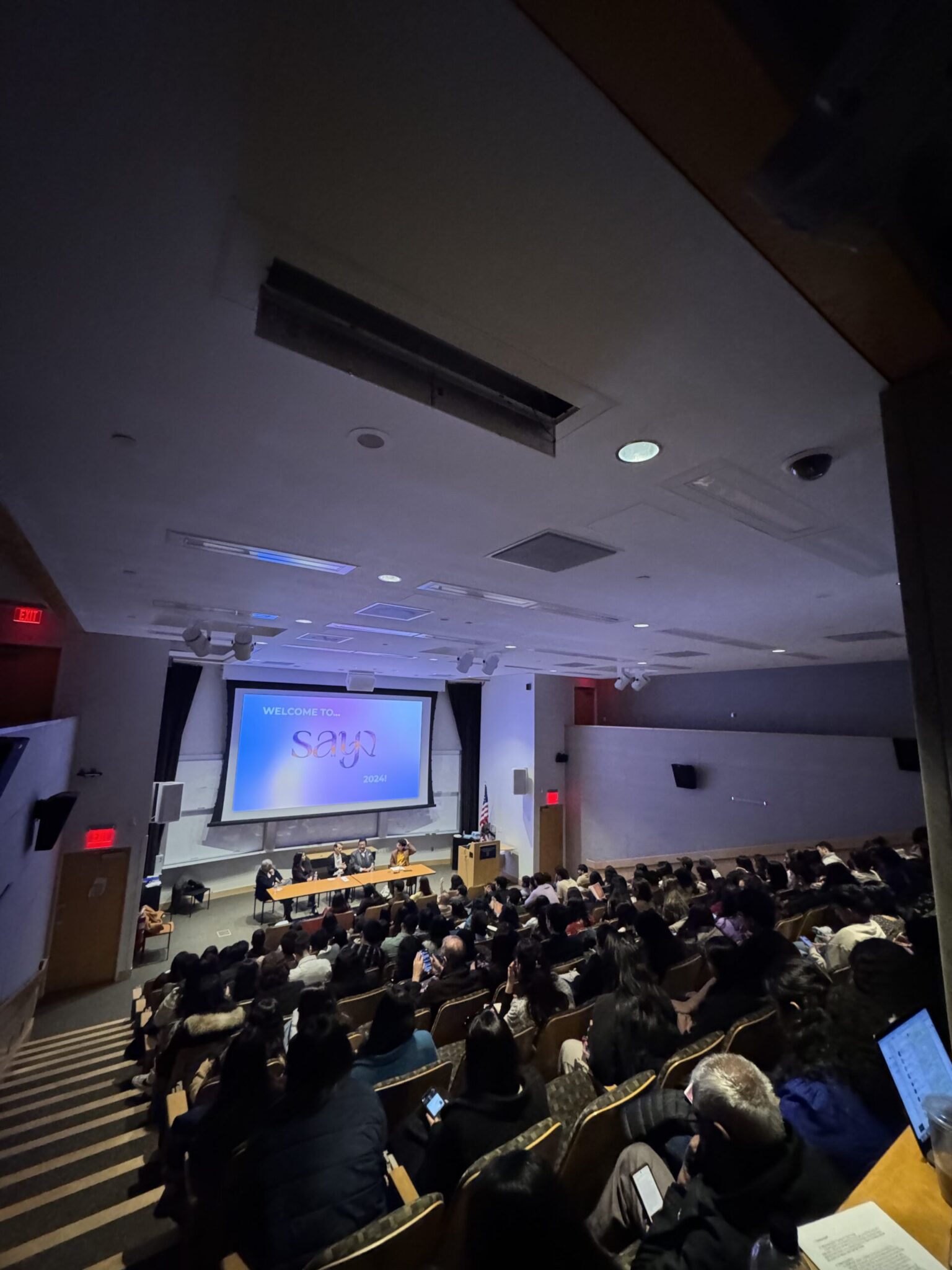Country’s largest South Asian collegiate conference held at Yale over the weekend
The South Asian Youth Initiative hosted its annual conference, welcoming over 500 students from across the country to campus. Students attended speaker events and panels, as well as a gala and cooking class, to explore South Asian identity and build community with other attendees.

Courtesy of Keya Gupta
Over the weekend, over 500 college students came to New Haven for the South Asian Youth Initiative’s annual conference.
The conference, which took place from Feb. 9 to 11, featured speakers, panels, a gala and other events for attendees. The South Asian Youth Initiative, or SAYI — a student organization “dedicated to providing a platform for South Asians and South Asian-Americans to engage in activism, meaningful discussions, and foster solidarity in South Asia” — planned the events. Organizers reported that over 500 students attended the conference from over 30 schools across the country.
“My favorite part of the conference was being able to connect with fellow South Asian students across different universities that I would usually never get the chance to connect with — being able to hear from so many different people from different South Asian backgrounds, about their experiences with their cultural identities and how their identity informs whatever line of work they’re pursuing, and their lived experiences,” said Kyra Menon, a first-year student at Cornell University who attended the conference.
According to Uma Bery ’25, treasurer of SAYI, funding for the conference came from several sources, including both corporate and individual sponsorships, Yale grants and the cost of the tickets. In the end, Bery reported that the budget totaled over $50,000. Local New Haven restaurants also provided meals for the attendees for free in exchange for promotions, Bery said.
The first event on Friday was the keynote speech by Hamid Rashid, the chief of the UN Global Economic Monitoring Branch. The next morning, Avantika Vandanapu — the actress, known by stage name Avantika, who played Karen in the recent Mean Girls movie — participated in a fireside chat. Avantika is also a first-year student at Columbia University.
SAYI co-director Daliya Habib ’25 explained that, in her speech, Avantika emphasized the importance of being “joyous” as a South Asian person.
“It was really important how she spoke about not shying away from playing roles, – on screen or in a life generally – that dare to be joyous and joyful, especially in a world that otherwise stereotypes minority groups to be kind of miserable, the victim,” Habib said.
The panels, which followed Avantika’s Q&A, were organized with an “interdisciplinary approach” per Habib, instead of grouping the speakers by field or country of origin.
Each panel hosted a variety of different speakers who were from different disciplines but shared a common South Asian identity.
“[This style of grouping] made the conversation that much more nuanced. They don’t kind of constantly have to explain, ‘I’m a South Asian person in the media space, and this is what it means to be South Asian.’ It’s more a broader discussion.” said Bery. “It ties into changing the narrative from being the victim of being an immigrant population … to embracing the more positive components to that community.”
The five panels were called Broadening Belonging; Past, Present and Posterity; Founders who Spark Change; Collective Action; and Transborder Tapestry.
Head Panel Curator Nikita Paudel ’25, explained that organizers “put so much intentionality into every decision” in the panels and other parts of the conference.
“The most meaningful part of the conference was the conversations and connections that happened because of it,” she wrote to the News “And our hard work paid off!”
In the evening, the organizers hosted a gala at the Omni Hotel for attendees, followed by an afterparty on High Street called ‘Chai After Dark.’
Atharva Barve, a Cornell Junior who attended the conference, told the News that the gala was his favorite event.
“I really liked the Gala, especially when everyone was dancing together because you can meet different people from different schools. I am personally on a Bhangra team so it was really cool to meet different people from different schools on different Bhangra teams and build a kind of community,” Barve said.
Other attendees interviewed by the News said that the event inspired connection with other students, as well as embracing their South Asian identity and culture.
SAYI co-director Keya Gupta ’25 said that hearing positive feedback from attendees was one of the most meaningful parts of the conference for her.
“[When] the attendees tell you, and we heard this several times, that this was one of the most special weekends that they’ve had — I think nothing can compare that moment of joy, satisfaction, fulfillment that you get from hearing that,” she said.
Last year was the first time SAYI hosted the event since the COVID-19 pandemic. Organizers said that other Yale organizations helped support SAYI in planning the conference — including the South Asian Studies Council and the South Asian Society, Dwight Hall and the graduate students and faculty members who attended the events.
“We already are very well known across the South Asian collegiate spaces, but our goal is to make this a much more established event, more accessible to South Asian students across the country and students coming into Yale,” Gupta said. “And so that future leaders running the conference know what they should, what mistakes to avoid so that it can become bigger and better each time.”
The organization’s website describes SAYI as the “the largest conference of its kind in North America.”







